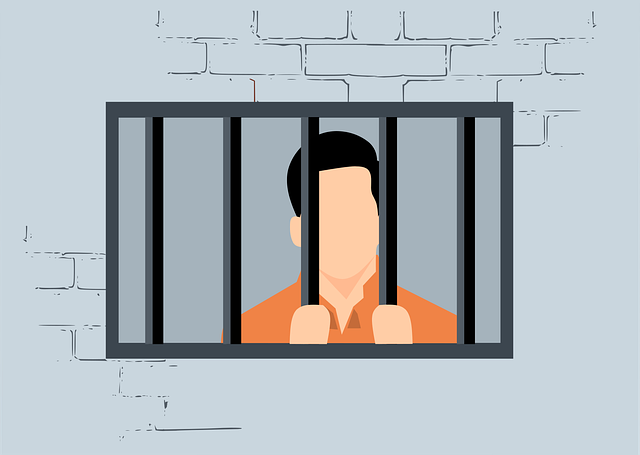The legal industry's digital transformation requires innovative tech solutions, particularly in complex regulatory areas like Blood Alcohol Level (BAL) testing. Traditional manual methods are time-consuming and error-prone, but automated BAL testing systems offer faster, more accurate results. These technological advancements are crucial for ensuring compliance and efficiency, especially in alcohol offense cases. In law enforcement, digital breathalyzers provide precise BAC readings through advanced algorithms and sensor technologies, streamlining the BALT process and enhancing accuracy. As legal processes integrate technology, data privacy and security become essential to protect sensitive information. Law enforcement agencies have successfully embraced tech solutions like advanced BAL testing systems and digital forensics, revolutionizing public safety measures and improving case outcomes. The legal industry is poised for a tech-driven revolution with AI, automation, blockchain, and analytics transforming traditional practices, leading to enhanced efficiency and an increasingly digital justice system.
The legal sector is undergoing a digital transformation, and adopting tech solutions is crucial for future-proofing law enforcement. This article explores how technology, particularly in areas like blood alcohol level testing, enhances accuracy and efficiency while navigating evolving legal landscapes. We delve into data privacy concerns, examining the successful implementation of tech solutions in law enforcement through case studies. Additionally, we predict trends shaping the future of tech-assisted legal services, focusing on key considerations for a robust digital legal framework.
- The Evolving Legal Landscape: Understanding the Need for Tech Solutions
- Blood Alcohol Level Testing: A Traditional Method in a Digital Age
- The Role of Technology in Enhancing Accuracy and Efficiency
- Data Privacy and Security Considerations in Future-Proofing Legal Processes
- Case Studies: Successful Implementation of Tech Solutions in Law Enforcement
- Looking Ahead: Predicting the Future of Tech-Assisted Legal Services
The Evolving Legal Landscape: Understanding the Need for Tech Solutions

The legal landscape is constantly evolving, and with it, the need for innovative tech solutions to stay ahead. In today’s digital era, technology plays a pivotal role in shaping legal practices and ensuring compliance. One prominent area where this is evident is in regulatory testing, such as Blood Alcohol Level (BAL) testing. Traditional methods often rely on manual processes, which can be time-consuming and prone to human error. However, with advancements in tech, automated BAL testing systems are now available, offering faster, more accurate results.
This shift towards technology is not just a convenience; it’s a necessity. As laws become more complex and regulations tighten, legal professionals must adapt. Tech solutions enable them to navigate this changing landscape effectively, ensuring they stay compliant while providing efficient services. For instance, automated BAL testing not only streamlines the process but also enhances data accuracy, which is crucial for legal cases centered around alcohol-related offenses.
Blood Alcohol Level Testing: A Traditional Method in a Digital Age

In the digital age, where technology continues to evolve at a rapid pace, some traditional methods face the challenge of staying relevant. One such example is Blood Alcohol Level (BAL) testing, a process that has been in use for decades to determine intoxication levels. While it remains a crucial tool in law enforcement and safety protocols, the rise of digital solutions presents an opportunity to enhance its efficiency and accuracy.
Traditional BAL testing involves physical samples taken from individuals, which can be prone to human error and potential tampering. Digital solutions offer a promising alternative with advanced breath analysis devices that provide instant, on-site results. These innovative tools use sophisticated sensors and algorithms to measure alcohol concentration in real time, ensuring faster decision-making processes during traffic stops or security checks. By integrating these digital systems, law enforcement agencies can streamline their operations, improve accuracy, and potentially reduce the impact of human error in BAL testing.
The Role of Technology in Enhancing Accuracy and Efficiency

In the realm of law enforcement, technology plays a pivotal role in enhancing accuracy and efficiency, particularly in critical areas such as blood alcohol level testing. Advanced tech solutions like digital breathalyzers offer more precise readings compared to traditional methods. These devices employ sophisticated algorithms and sensor technologies to instantaneously analyze a subject’s breath, providing reliable data on blood alcohol content (BAC).
Moreover, technological innovations streamline the entire process, from data collection to evidence storage. Digital records minimize human error and ensure the integrity of test results. This not only expedites legal proceedings but also strengthens the accuracy of BAC determinations, ultimately contributing to fairer and more efficient justice.
Data Privacy and Security Considerations in Future-Proofing Legal Processes

As legal processes evolve with technology, data privacy and security become paramount in future-proofing these systems. With digital transformation comes an increased reliance on sensitive data, from electronic case files to online court portals. Protecting this information is crucial not only for maintaining public trust but also for ensuring the integrity of legal outcomes. Legal professionals must adopt robust security measures, such as encryption protocols and access controls, to safeguard data from cyber threats.
Consider the example of Blood Alcohol Level Testing (BALT) systems used in criminal proceedings. These digital tools streamline evidence collection but require meticulous privacy and security measures to prevent data breaches or manipulation. By implementing stringent data protection policies and staying abreast of emerging cybersecurity trends, legal systems can ensure that technology enhances fairness and accuracy while mitigating potential risks associated with data privacy and security.
Case Studies: Successful Implementation of Tech Solutions in Law Enforcement

In recent years, law enforcement agencies have successfully integrated tech solutions to enhance their operations and ensure public safety. One prominent example is the implementation of advanced Blood Alcohol Level (BAL) testing systems. These innovative tools utilize cutting-edge sensors and analysis software to accurately measure blood alcohol content, reducing human error and increasing the reliability of evidence in DUI cases. By adopting such tech, law enforcement has witnessed improved efficiency in processing suspects and enhancing overall case outcomes.
Another notable case study involves the use of digital forensics and data analytics in investigating cybercrimes. Through advanced algorithms and machine learning, law enforcement can now analyze vast amounts of digital data more swiftly and accurately than ever before. This capability has proven invaluable in identifying and apprehending cybercriminals, demonstrating the tangible benefits of tech solutions in modern policing practices.
Looking Ahead: Predicting the Future of Tech-Assisted Legal Services

The future of legal services is poised for a significant transformation, driven by technological advancements that promise to enhance efficiency, accessibility, and accuracy. One area ripe for innovation is tech-assisted legal processes, particularly in areas like Blood Alcohol Level (BAL) testing procedures. With the rise of AI and automation, we can anticipate more sophisticated systems managing administrative tasks, from document review to case management, allowing lawyers to focus on complex strategic decisions.
Predictable trends include further integration of blockchain technology for secure data sharing and smart contracts, ensuring transparency and streamlining processes like contract drafting and execution. Additionally, the use of advanced analytics could revolutionize legal research, enabling practitioners to analyze vast amounts of data swiftly and accurately. This shift towards tech-driven solutions not only future-proofs legal practices but also promises to make the delivery of justice more accessible and responsive to an increasingly digital world.
As we peer into the future, it’s evident that technology will continue to reshape the legal landscape. The integration of innovative solutions, such as advanced data analytics and digital testing methods, like blood alcohol level testing (BALT), offers unparalleled opportunities for enhanced accuracy, efficiency, and security in law enforcement. By adopting these tech-assisted approaches, legal professionals can future-proof their practices, ensuring they remain effective and responsive to the evolving needs of society. Case studies demonstrate that successful implementation yields tangible benefits, setting a precedent for a more streamlined, secure, and technologically advanced justice system.






